COVID-19
Academics Raise Concerns About UK Covid-19 Inquiry
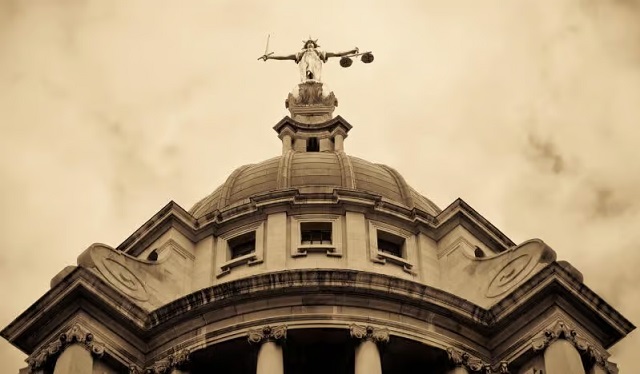
From the Brownstone Institute
BY
Over 50 prominent UK academics have signed an open letter to Baroness Heather Hallett, chair of the UK Covid-19 Inquiry, calling for urgent action to address the shortcomings of the probe so far. The signatories of the letter say the Hallett Inquiry suffers from bias, false assumptions, and a lack of impartiality.
“The Covid Inquiry is not living up to its mission to evaluate the mistakes made during the pandemic, whether Covid measures were appropriate, and to prepare the country for the next pandemic,” they write.
Kevin Bardosh, lead signatory and Director of Collateral Global has been following the Inquiry closely. He’s concerned it has focused too much on “who said what and when,” rather than homing in on key scientific questions about the evidence (or lack thereof) underpinning policy decisions.
 Prof Kevin Bardosh, Director of Collateral Global. Photo credit: Shutterstock
Prof Kevin Bardosh, Director of Collateral Global. Photo credit: Shutterstock
“The Inquiry was pre-designed on the assumption that the government ‘didn’t do enough’ to protect people during the pandemic,” says Bardosh. “But the thing about the pandemic is that more measures, didn’t mean more lives saved. It’s a paradoxical aspect of health policy that more doesn’t necessarily mean better.”
Bardosh, who is affiliated with University of Edinburgh Medical School, says because the Inquiry’s starting position is that non-pharmaceutical interventions (e.g. masks) and lockdowns were necessary and effective, it’s not actually interrogating the trade-offs of these policies.
“If you go back to pre-Covid, policies like lockdowns, extended school closures, and contact tracing for a respiratory virus, were not the ‘scientific consensus’ for how to respond rationally to a pandemic,” he says. “In fact, the reverse was true. The goal was to minimise the disruption to society because it would have all these short and long-term unintended consequences.”
In December 2023, when Prime Minister Rishi Sunak was questioned at the Inquiry, he admitted the UK government had failed to discuss the costs and benefits of pandemic policies.
 UK Prime Minister Rishi Sunk questioned at UK Covid Inquiry
UK Prime Minister Rishi Sunk questioned at UK Covid Inquiry
Sunak pointed to a peer-reviewed report by Imperial College London and the University of Manchester that applied a Quality-Adjusted Life Year analysis to the first lockdown in the UK and found “for every permutation of lives saved and GDP lost, the costs of lockdown exceed the benefits.” [emphasis added]
Bardosh has also called out the Inquiry for its double standards in scrutinising experts.
Take for example, Neil Ferguson, professor at Imperial College and former SAGE member. He was the architect behind lockdowns after his March 2020 models warned that 500,000 Brits would die unless tougher restrictions were put in place to curb spread of the virus.
Bardosh says, “The Inquiry hasn’t really questioned Ferguson’s mathematical model in any substantial way. But if you compare that to the questioning of Professor Carl Heneghan, who’s based out of Oxford, it was very confrontational, and they used provocative language to suggest he didn’t have expertise in this area.”
Heneghan, the director of Oxford’s Centre for Evidence-Based Medicine, was among 32 senior UK academics who urged then-Prime Minister, Boris Johnson to think twice about plunging Britain into a second lockdown in the autumn of 2020.
It was revealed during evidence to the Inquiry, that the UK’s Chief Scientific Adviser, Dame Angela McLean, called Heneghan a “fuckwit” on a WhatsApp chat during a September 2020 Government meeting for his dissenting views on lockdowns.
 Prof Carl Heneghan, director of Centre of Evidence-Based Medicine, Oxford
Prof Carl Heneghan, director of Centre of Evidence-Based Medicine, Oxford
Later, Heneghan penned a scathing article in The Spectator, calling the Inquiry a “farce – a spectacle of hysteria, name-calling and trivialities.”
“Lockdown was the most disruptive policy in British peacetime history, with huge ramifications for our health, children’s education and the economy,” wrote Heneghan.
“This is an opportunity for the inquiry to gather evidence and ask whether lockdown and other interventions actually worked…Instead we have a KC [King’s Counsel] who seems uninterested in substance and obsessed with reading out rude words he has found in other people’s private messages.”
Bardosh and the other signatories have also raised concerns about the structure of the scientific advisory groups in the Inquiry, which have omitted key experts in child development, schooling impacts, social, and economic policy.
“The Inquiry must invite a much broader range of scientific experts with more critical viewpoints. It must also review the evidence on diverse topics so that it can be fully informed of relevant science and the economic and social cost of Covid policies to British society,” write the signatories.
So far, Bardosh is unimpressed with the ‘political theatre’ of the Inquiry, but hopes Baroness Hallett will urgently address its shortcomings to avoid compromising the credibility of future public inquiries.
“Not having an inquiry that really asks those questions is very damaging to the idea of accountability. We need to hold to account the policy decisions that were made because if we don’t, the next time there’s a public health emergency, these measures will come back into place whether or not they actually work,” says Bardosh.
The Hallett Inquiry is slated to run until 2026 and is reported to be one of the largest public inquiries in UK history. The cost of the UK government’s Covid measures are estimated to be between £310bn and £410bn.
Republished from the author’s Substack
COVID-19
Peckford: Hallelujah! Supreme Court of Canada to hear Newfoundland and Labrador charter case

From the Frontier Centre for Public Policy
This will allow the SCC to address novel questions about the scope of mobility rights in Canada and the extent to which the government can limit Canadians’ rights to move freely around the country.
In what can only be considered a surprise move the SCC has agreed to hear an appeal of a decision of the Supreme Court of Newfoundland. Surprise because the Newfoundland and Labrador Court of Appeal refused to hear the appeal of this exact case.
For the Appeal Court it was the all too familiar excuse of the whole thing being too moot for the Court.
But now the SCC has agreed to hear the case. The parties, Kimberly Taylor and The Canadian Civil Liberties Association appealed to the court.
Here is a copy of the Civil Liberties Press Release dated April 26, 2024:
“Arbitrary travel restrictions infringe on the mobility rights of Canadians. CCLA’s challenge of Newfoundland government’s Bill 38 will continue before the Supreme Court of Canada (SCC), so that Canadians have clear, predictable, and stable answers to fundamental questions affecting their basic mobility rights.”
Back in May 2020, CCLA challenged the constitutionality of the Newfoundland government’s Bill 38 before the province’s Supreme Court. This Bill provided for a travel ban between provinces and other restrictive measures in the context of the COVID-19 pandemic. CCLA asked the Court to declare Bill 38 in violation of s.6 (mobility rights), as well as other Charter rights. CCLA also argued that the law could not be saved by s.1, which says that limits on rights must be reasonable and demonstrably justified. In September of 2020, the province’s Supreme Court found that the travel ban did violate the s.6 Charter right to mobility, but that such infringement could be justified under s.1. CCLA pursued this case before the Newfoundland and Labrador Court of Appeal. In August of 2023, the Court of Appeal refused to settle the merits of the appeal under the motive that it was moot, since the ban had been lifted. This was done despite all the parties urging the Court of Appeal to decide the appeal on the merits.
CCLA is pleased to learn that the SCC just granted its application seeking leave to appeal in this case. This will allow the SCC to address novel questions about the scope of mobility rights in Canada and the extent to which the government can limit Canadians’ rights to move freely around the country. CCLA is grateful for the excellent pro bono work of Paul Pape, Shantona Chaudhury and Mitchell McGowan from Pape Chaudry LLP in this file.”
Like the Association I am pleased that the highest court is going to hear the case. One can only assume that it will not just issue a silly moot decision given that they could have let the Court of Appeal decision of Newfoundland stand and not hear the case.
I hope the highest court considers the following given it is high time for the Constitution of This Country to be fairly applied and interpreted as written.
Courts have not the power to rewrite this sacred document. They are not omnipotent. That is for the people through its elected representatives as expressed in Section 38 of the Constitution Act 1982 in which the Charter is located—the Amending Formula.
The intent of Section 1 Of the Charter was that it could only be applied in a war, insurrection, the state being threatened circumstance. As one of the First Ministers involved and whose signature is on the original Patriation Agreement I submit this point of view was what was operative at the time of the construction of this section. All remaining First Ministers whose names are on that document are no longer with us. Sadly, no court has called me to provide my view.
This intent is clear In Section 4 (2) of the Charter:
“In time of real or apprehended war, invasion or insurrection, a House of Commons may be continued by Parliament and a legislative assembly may be continued by the legislature beyond five years if such continuation is not opposed by the votes of more than one-third of the members of the House of Commons or the legislative assembly, as the case may be.”
So, decisions that have been made concerning the Charter should only be made in this context. Numerous court deliberations here and in many western jurisdictions have considered intent in determining the legitimacy of legislation. This is not novel or new.
Hence, a glaring, fundamental mistake has occurred in interpreting our Charter. The blatant omission of considering the opening words of the Charter in any interpretation of legislation by the Courts is an abuse of the Charter, our Constitution. Where is the power provided the courts to engage is such omission? Those words are:
“Whereas Canada is founded upon principles that recognize the supremacy of God and the rule of law:”
The one reference of which I am aware in the Courts literature to any consideration of the opening words relating to God was by an Alberta Judge in a lower court foolishly indicated that the creators of the words did not identify God as being a Christian God. All the creators, the First Ministers, were Christians —that’s all. What an insult to our history and traditions and the authors?
And this has been allowed to stand?
And what about the rule of law? Little if anything has been done in considering and interpreting this point.
As for Section 1 itself of the Charter. If one can get past the previous points, which is impossible, but let’s speculate: the court in question in Newfoundland, like the courts across the land, have disfigured, misinterpreted the wording of this section —-
Rights and freedoms in Canada
The Canadian Charter of Rights and Freedoms guarantees the rights and freedoms set out in it subject only to such reasonable limits prescribed by law as can be demonstrably justified in a free and democratic society.
What is of crucial importance is ‘demonstrably justify ‘and a free and democratic society ‘—-is it not? Many try and evade confronting these concepts by emphasizing ‘reasonable ‘. But ‘reasonable ‘is qualified, if you will, with ‘as can be demonstrably justified ‘and ‘in a free and democratic society.’ This was deliberate by the creators and authors of this section.
So, as we all know such reasonable demonstration would be a cost benefit analysis, a tool used frequently by Government in considering new policies or programs —and this case especially when sacred rights enshrined in the constitution were to be taken way!!! Yet, there was none! And what about the Provincial Emergency Management organizations that were already established in all the provinces with immediate expertise. Were they consulted? Not one!
No such attempt was made, and the Governments did not conduct even a cursory cost benefit review and the courts eagerly accepted the one-sided Government narrative. Yet experts like Lt. Colonel David Redman, who had been involved in Emergency Management and had written extensively on it were never consulted!
And ‘free and democratic society? Was there any meaningful engagement of the Parliament of Canada or the Legislative Assemblies —-not really, ——only to delegate power to unelected bureaucrats and relieve the politicians of direct responsibility. Where were the Parliamentary Committees? The sober consideration of all points of view in an open public session? Of independent science? Does not free and democratic society entail such deliberations?
And to those courts / governments who talk about little time—in this Newfoundland case it was 6 months before The Supreme Court of the Province ruled and 15 months for the Court of Appeal to issue a non-decision! So much for serving the people!
As for the concept of ‘mootness ‘that has been most dramatically used by the Federal Court and the Federal Court of Appeal and The Court of Appeal in Newfoundland? This is a construct of the court not the Constitution.
It denies a citizen the right to know whether a government action to which a citizen was subjected violates the Charter. Should a court idea of mootness, refusing to rule on whether a government action of only months before overruling the people’s right to know if their rights and freedoms were violated? Is this not the role of the Court? To protect the rights and freedoms of the citizens from Government overreach? That was and is the whole point of the Charter.
Whether the Government action is presently operative or not should be irrelevant, especially when millions of citizens were involved and especially when it involved rights and freedoms protected under the Charter, our Constitution. There may be a role for mootness if a frivolous matter is established but by any measure what we are discussing is anything but a frivolous matter, even though The Newfoundland Court of Appeal in calling the whole thing ‘moot ‘had the gall to find the Government’s action of denying rights ‘fleeting.’ Courts have abdicated their solemn responsibilities to the people in the exaggerated use of such Court constructed procedures.
So the highest court can go back to ‘first principles’, and examine intent and the opening words of the Charter and place them in full context in any interpretation of the Charter. If this were done then Section 1 of the Charter would not even be in play. Constructing a hypothetical i.e. considering Section 1 of the Charter during the so called ‘covid emergency’, well, even if we do, the Government and Court reasoning would have failed as demonstrated above.
There is an opportunity through this case as well as the one in which I am involved for our highest court to get it right——to return to the full constitution and re-establish the ‘supremacy of God and the rule of law, ‘the legitimate role of Parliament, to the plain meaning of demonstrably justify, and the importance of intent in interpreting our Charter.
Is the Supreme Court of Canada up to the challenge?
Will our Constitution, our democracy be restored?
The Honourable A. Brian Peckford P.C. is the last living First Minister who helped craft the Canadian Charter of Rights
Watch – Leaders on the Frontier: Brian Peckford on Saving Canada’s Democracy | Frontier Centre For Public Policy (fcpp.org) January 20, 2022
COVID-19
Former Canadian lawmaker has no regrets about refusing COVID shot despite losing his job
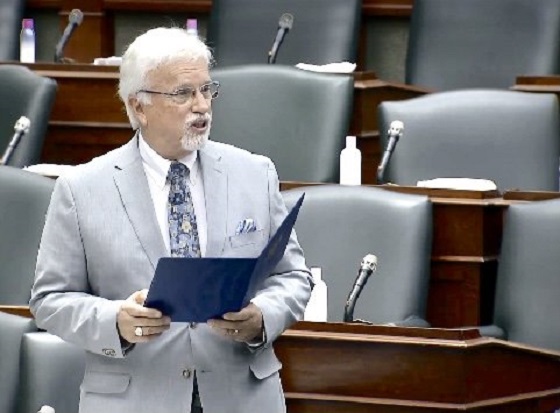
Ontario MPP Rick Nicholls
From LifeSiteNews
MPP Rick Nicholls was ousted from the Progressive Conservative Party by Doug Ford, but he said he has talked to party people who have told him, ‘Rick, I was against what you did, but you did the right thing.’
Former Ontario MPP Rick Nicholls, who was once an elite member of Ontario’s Progressive Conservative (PC) Party before Premier Doug Ford kicked him out for refusing to take the COVID shot, says he has no “regrets” for refusing to bow to pressure to get COVID jabbed, noting he feels justified for his actions for going against the party leader’s demands.
Nicholls, who once served as the deputy speaker of the Ontario legislative assembly, noted, as per an Epoch Times report, that as increased information comes out about the COVID shots, he has talked to party people who have told him, “Rick, I was against what you did, but you did the right thing.”
Nicholls had been an MPP since 2011 but was booted from Ford’s ruling PCs in August 2021. In the same month and year, Ford mandated that all of his MPPs have the COVID jabs. At the time, Nicholls said he voiced his “concerns about our policy privately to the premier and to the Ontario PC caucus.”
He observed that from the get-go he did not call the COVID injection a “vaccine” but instead a “jab, or the shot,” noting how a vaccine should not need multiple boosters.
“That’s not a vaccine,” he said.
Nicholls also blamed the legacy media for promoting the shots at the behest of federal and provincial governments despite not having any long-term data on the effectiveness or safety of the jabs.
“I blame the legacy media for not printing the truth,” he said.
As reported by LifeSiteNews, Nicholls in 2021 said people should not be “penalized for their choice” to refuse the COVID jabs, the safety of which he questioned, while having to announce he was forced to step down as deputy speaker of the Ontario Legislature. He then sat as an independent MPP for a time before joining the Ontario Party to serve as their only sitting member until the 2022 election.
Draconian COVID mandates, including those surrounding the experimental mRNA vaccines, were imposed by the provincial Ford government as well as the federal Liberal government of Prime Minister Justin Trudeau.
In April 2021, the Ontario provincial government once again increased its COVID measures and declared a state of emergency over rising cases of the virus. It then put in place a complete ban on all outdoor gatherings that, in effect, made peaceful protests illegal in the province.
LifeSiteNews has published an extensive amount of research on the dangers of receiving the experimental COVID mRNA jabs, which include heart damage and blood clots.
Last week, LifeSiteNews reported that the shots were heavily promoted on social media by the federal government. Indeed, a recent Inquiry of Ministry request revealed that Canada’s Public Health Agency (PHAC) along with Health Canada have combined to spend approximately $9.9 million on social media advertising to promote the experimental COVID injections since 2020.
Ford asked former MPP to do him a ‘favor’ by getting the shot
Nicholls observed as per The Epoch Times that while he had early in the COVID crisis, albeit with caution, gone along with Ford’s government position regarding COVID mandates and lockdowns, it was not until August 2021 that Ford demanded he either get the jab or he would get the boot.
Ford called Nicholls and said, “I need you to do me a favor,” adding “I need you to get vaccinated.’”
The request from Ford came after he told media that he would make it so that all his caucus members had the shot. Nicholls told Ford that media pressure to get the shots was not a good reason for him to bow to pressure and get injected.
After being told to think about getting the shots by Ford, Nicholls noted that he got many calls from party insiders and other MPPs urging him to get the jabs.
In one direct call to Nicholls from the PC’s campaign manager, he was told, “Rick, you’ve got 72 hours. You either get vaccinated or I’m removing you from caucus.”
Despite the pressure, Nicholls did not waver, and on August 19, 2021, he told the media he would not be getting the shot. He noted how he had taken Ford’s “word” that “vaccination is a choice and that all Ontarians have a constitutional right to make such a choice” to the media at the time.
“I stand strong in my personal choice not to be vaccinated, which ultimately led to (my) decision to step down. I oppose mandatory vaccines. I believe in personal choice when it comes to having a foreign substance injected and that an individual should not be punished for CHOICE,” he told reporters.
Nicholls said he received notification that he was being removed as deputy speaker not from Ford but through media reports.
“I want to thank the media for letting me know that the government has actually already selected a replacement for me. Yes, that’s correct. The government didn’t let me know,” Nicholls said.
Nicholls noted, according to The Epoch Times, that had he gotten the COVID shot there was an exceptionally good chance he would have been re-elected in 2022.
“I knew that had I stayed and got the shot — and survived the shot I might add — I knew that I had an excellent chance of being re-elected again (to a) fourth term,” he said.
While sitting as an independent, he was able to ask challenging questions to the minister of health and Ford himself regarding the COVID shots “and the vaccine and information that I’m getting that they were denying.”
“And if I had a dollar for every time that former Minister of Health Christine Elliot said these vaccines are safe and effective, I’d be a rich guy,” he said.
COVID vaccine mandates, which came from provincial governments with the support of Trudeau’s federal government, split Canadian society. The mRNA shots themselves have been linked to a multitude of negative and often severe side effects in children.
The jabs also have connections to cell lines derived from aborted babies. As a result of this, many Catholics and other Christians refused to take them.
As reported by LifeSiteNews recently, the Trudeau government is still under contract to purchase multiple shipments of COVID shots while at the same time throwing away $1.5 billion worth of expired shots.
The continued purchase of COVID jabs comes despite the fact the government’s own data shows that most Canadians are flat-out refusing a COVID booster injection. It also comes as the government has had to increase spending on Canada’s Vaccine Injury Program (VISP), as reported by LifeSiteNews last week.
Canadians’ decision to refuse the shots also comes as a Statistic Canada report revealed that deaths from COVID-19 and “unspecified causes” rose after the release of the so-called “safe and effective” jabs.
-

 CBDC Central Bank Digital Currency2 days ago
CBDC Central Bank Digital Currency2 days agoA Fed-Controlled Digital Dollar Could Mean The End Of Freedom
-
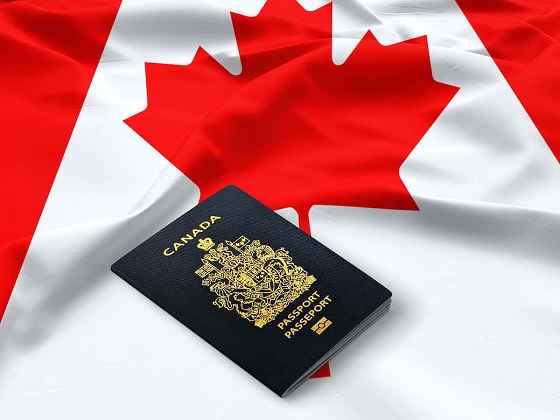
 Frontier Centre for Public Policy1 day ago
Frontier Centre for Public Policy1 day agoHow much do today’s immigrants help Canada?
-
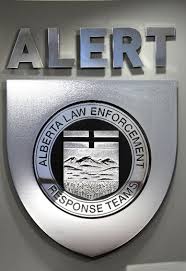
 Alberta15 hours ago
Alberta15 hours agoPrincipal at Calgary Elementary School charged with possession of child pornography
-

 Fraser Institute15 hours ago
Fraser Institute15 hours agoFederal government’s fiscal record—one for the history books
-

 Alberta10 hours ago
Alberta10 hours agoAlberta threatens to fight Trudeau government restrictions on Canada’s plastics industry
-
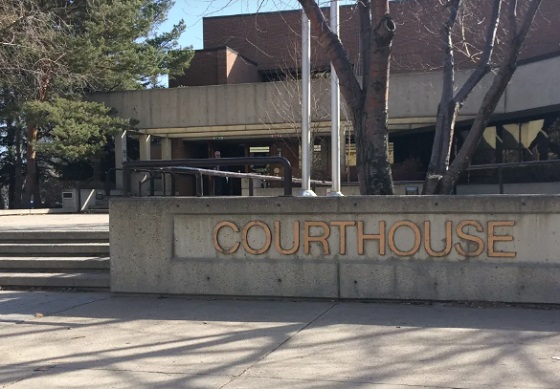
 Alberta14 hours ago
Alberta14 hours agoRed Deer Company fined $360,000.00 after 2022 workplace fatality
-

 Brownstone Institute2 days ago
Brownstone Institute2 days agoThe Numbers Favour Our Side
-

 Bruce Dowbiggin14 hours ago
Bruce Dowbiggin14 hours agoIn Toronto The Leafs Always Fall In Spring: 2024 Edition









